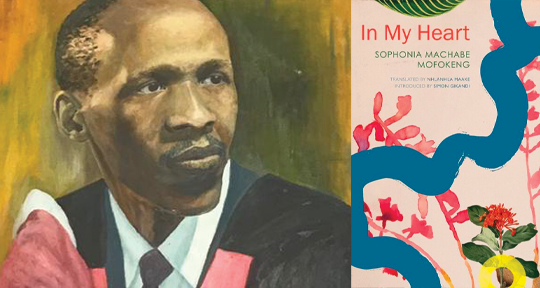In My Heart by Sophonia Machabe Mofokeng, translated from the Sesotho by Nhlanhla Maake, Seagull Books, 2021
Despite an intent to explore beyond Anglocentric spaces, the framework of decolonial studies—defined as the analysis of dynamics between Anglocentrism and colonialism as well as of colonised populations—is still plagued with first-world privileges. Most decolonial texts are theorised and written by a dominantly white scholar community, within a hegemonic Euro-U.S. production. In fact, in the introduction to the original text of Pelong ya Ka (translated as “In My Heart”), Simon Gikandi quoted Karin Barber on how postcolonial criticism has failed to include texts written in African languages, “eliminating African-language expression from view.” By designating Anglocentrism as the form of knowledge production, academia defines what can be classified as “decolonial writing” based on an imperialist discipline of worth determination—comprising of research, praxis, theories, formulations, and discourses operating in materialistic space. To have decolonial texts navigate inter- and intrapersonal spaces is almost unheard of, and is unacknowledged as “real” decolonial scholarship in the Anglo academic sphere.
Sophonia Machabe Mofokeng’s In My Heart is a collection of meditative essays which enter and navigate these unheard-of spaces, introducing Sesotho worldview in radical decolonial studies. In this undertaking, he charts the territory of the heart, wherein the values and experiences largely considered universal—such as death and time—are interrogated instead as largely dominated by privilege. Gayatri Spivak introduces this book, the second publication of Seagull Books’ “Elsewhere Texts” series, as among the pivotal works of decolonial studies within their respective countries, essential in fighting “against a rest-of-the-world counter-essentialism.” She criticises the “global” efforts in bridging multiple cultures, however, through “the imperial languages, protected by a combination of sanctioned ignorance and superficial solidarities . . . even when they are at these global functions.”

